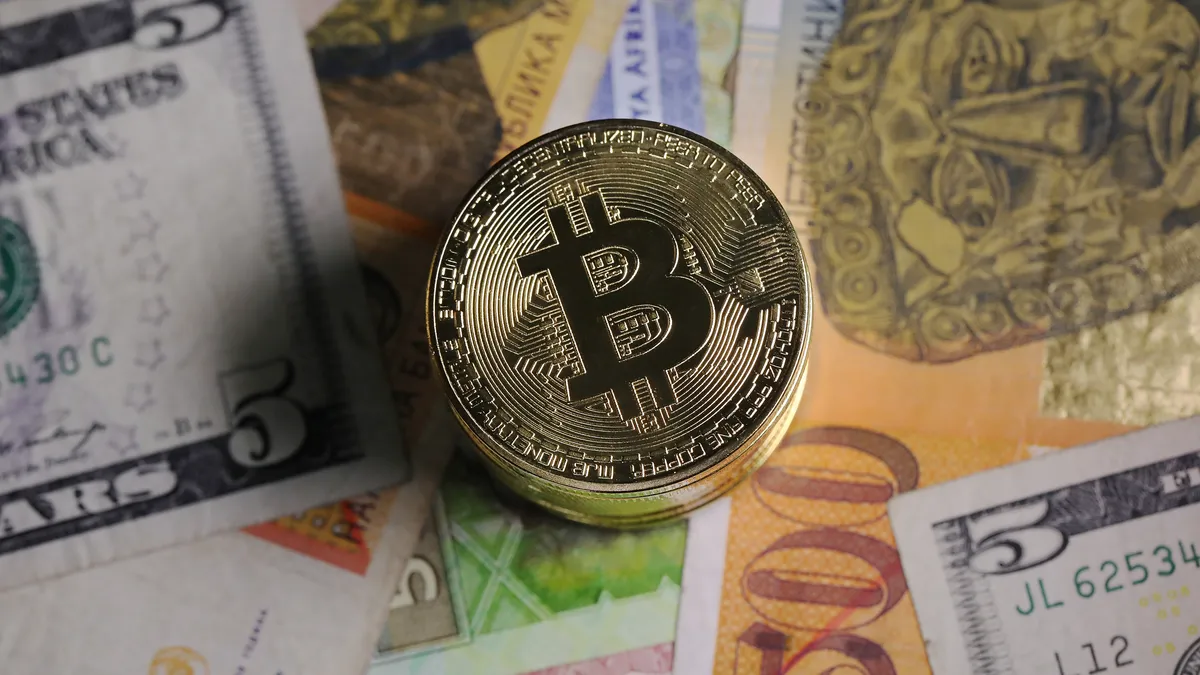Dive Brief:
- In an interview with CNBC this week, Landry's CEO Tilman Fertitta said most of his company's restaurants will start accepting bitcoin as payment in the next three months, calling the move "inevitable" as cryptocurrencies become more mainstream. Landry's footprint includes Mastro's, Morton's The Steakhouse and Bubba Gump Shrimp Company.
- During the interview, Fertitta said its upscale Mastro's would begin taking bitcoin this week.
- Landry's joins a growing number of restaurants that have started accepting cryptocurrency in global markets, including Pizza Hut, KFC, Starbucks, Subway and Burger King. Some foodservice delivery companies also accept bitcoin as a payment method, such as Takeaway and Shuttle Delivery.
Dive Insight:
The growth of cryptocurrency has been significant, particularly in a post-COVID-19 environment in which consumers are seeking more contactless options.
According to 2020 survey by HSBshows, 36% of small-medium businesses in the U.S. accept bitcoin. A growing number of investors have also backed bitcoin as an alternative to other assets, while more companies, like Microsoft, Overstock, Home Depot and Whole Foods, have started accepting bitcoin as well. In October 2020, PayPal announced it would include cryptocurrency exchanges on its platform of roughly 350 million users, illustrating its continued move into the mainstream.
Diner demand for contactless experiences is also significant. According to reseach from Piplsay, 51% of Americans said their preferences for touchless technology increased amid COVID-19, and Gartner predicts that by 2024, 80% of ordering, checkout and payment services will be contactless.
Accepting these digital payments doesn't require significant investment from businesses, either. According to the U.S. Chamber of Commerce, existing online payment processors usually offer a 1% or less transaction fee for cryptocurrency, which is less than most credit card fees. There are other benefits to the currency as well, including ease of transaction, Fertitta told CNBC.
However, there are challenges that come with using cryptocurrencies. The Internal Revenue Service classifies bitcoin as property, for example, meaning spending it is essentially the same as selling it and someone paying with bitcoin could owe on capital gains taxes at the point of transfer. There are also criticisms surrounding cryptocurrencies' volatility, with prices swinging by double digits in just a month and a general lack of cryptocurrency regulation. Further, some critics have cautioned cryptocurrencies are not secure.
There is also likely to be a major learning curve for consumers. A Subway franchisee started accepting bitcoins as payment as early as 2013, for example, and it has yet to become a preferred method of payment at the chain or elsewhere. George's King of Falafel & Cheese Steak in Washington, D.C., started accepting bitcoin about four years ago, and has tendered less than 10 such transactions.
As more restaurants like Landry's start to accept cryptocurrencies, however, that learning curve could shrink as more consumers get used to the payment method. More companies are also tying it into their marketing campaigns, which could at the very least create curiosity and trial. Chipotle celebrated National Burrito Day on April 1 by giving away $100,000 in bitcoin cryptocurrency, for example. Analysts are bullish about the future of cryptocurrencies, with several predicting widespread adoption by the mainstream public.











